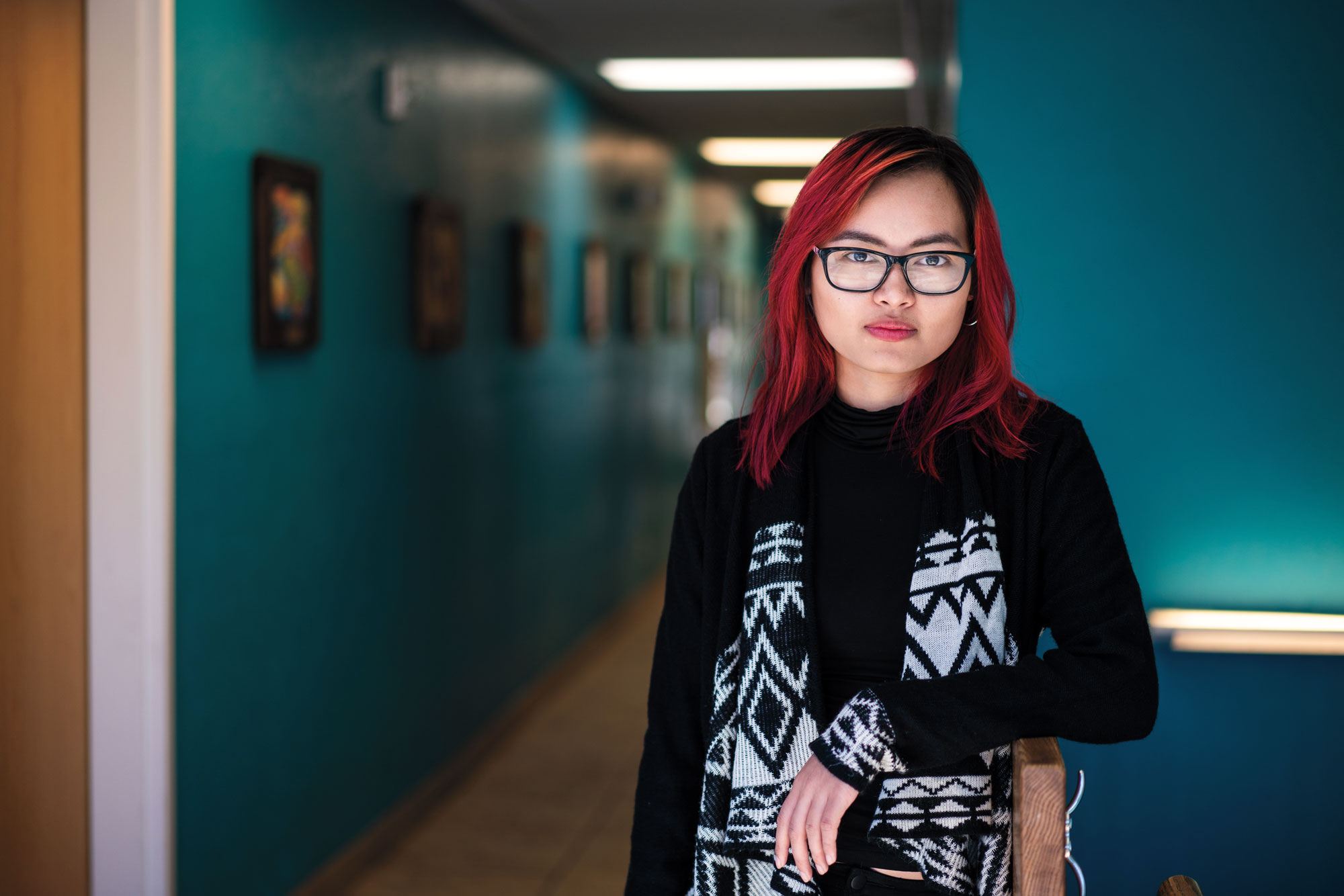
The Karen Higher Education partnership began this past Spring and is taking place at the UNP Hartland Partnership Center every other Friday. Last summer, we (Sayro Paw and Hser Eh Dah) conducted research in the Karen community about how and why the participants seek higher education, what has been helpful, and the reasons behind why they sometimes fail. The results showed that the participants of our focus group shared a common understanding of how important it is to receive a higher education, because “education is a weapon,” and receiving a higher education will help them thrive in their lives by becoming successful people and professionals. We also learned about some of the barriers. We found out that many couldn’t afford to go to college due to financial struggles and needing to help out their parents. We also learned that language barriers were a real issue and that many high school students were unsure about the culture and difficulty of the classes in college. Further, many of our participants, usually the oldest siblings, go right into the workforce after high school (often where their parents work), which creates a new cultural norm for the younger kids.
The purpose of developing this program, which is created from the research, is to build connections in and out of the community, share and learn about resources, and support one another. We are building community and confidence to step up and be able to practice our value of higher education. We hope to help Karen youth step out of their comfort zone and see the big picture of life. This program is not only about going to college or university but it can be anything such as getting a professional license, attending Job Corps, etc.
UNP has been a partner with the Karen community since 2008 and this year the Karen community involvement has increased more than the past 10 years. Furthermore, the Karen Community of Utah (KCU) has its own space in the incubator, two citizenship classes, the Karen-women weaving group, and this new program. Karen Higher Education is a part of Bridging Borders, an interdisciplinary partnership between University Neighborhood Partners and the University of Utah’s Asia Center, College of Social Work, and Division of Occupational Therapy.
Content provided by Sayro Paw and Hser Eh Dah
